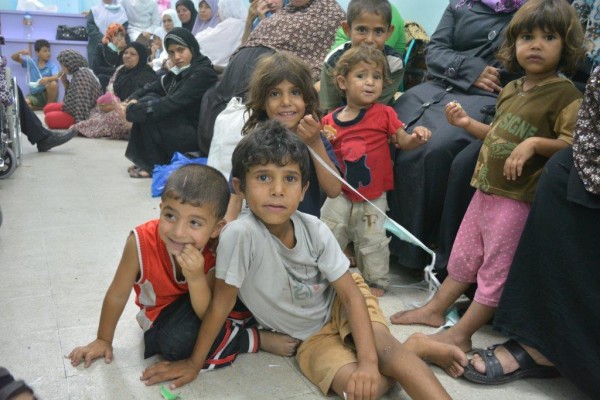27th July 2014 | Charlie Andreasson | Gaza, Occupied Palestine
We raced towards the hospital in Beit Hanoun, our mission was to assist in the evacuation of the hospital with the same name. The Israeli forces had already destroyed 13 ambulances in a row. We had to work fast. But we were soon trapped, Fred and I; there would be no more ambulances; it was too risky with Israeli tanks and soldiers in the area.
There were only three patients left, the rest had been evacuated in time. But there was a large and weary staff left, there were relatives of the three patients, there were civilians who had taken refuge in the hospital in belief that it was a safe place, and there were children. All in all, nearly one hundred people.
However a hospital is no safe haven in Gaza; six of thirteen hospitals have been seriously damaged after shelling and air strikes, one has been completely destroyed. That it is a violation of the Fourth Geneva Convention, article 18, does not bother the occupying power, nor do world leaders seem to worry significantly.
The upper floor of the two-story Beit Hanoun Hospital was evacuated; the patients were carried down. The roof of the building had already been hit several times, and everyone was worried. At the same time, our friends, other international activists in Gaza, began the work to raise awareness of what was happening in Beit Hanoun by quickly arranging a press conference at the main Gazan hospital, al-Shifa, where the media is always present.
A doctor at Beit Hanoun told us that our friends were on TV. We went into the room where several doctors were looking at the screen and Fred moved closer to hear more clearly. At that moment, an Israeli tank shot at the wall right over us on the floor above. Shattered glass whirled through the room, along with everything on the shelves. The light went out. Fred, who was injured by the glass, started to bleed from his head; luckily there were no serious injuries.
I called Joe (another ISM activist in Gaza), he went straight back to the podium and gave a direct report of what was happening. He demanded that the Red Cross and other bodies negotiate a truce to evacuate us, and together with others tried to force the outside world to pay attention to Israel’s crimes in real time. But the work did not stop there. They contacted embassies, foreign ministries in a number of countries, the press around the world, politicians, even Anonymous. The press began calling us in the hospital, receiving direct reports while military weapons roared in the background, occasionally with deafening blasts after direct hits and with the sound of frightened, screaming, and praying people.
We took refuge in a hallway in the center of the ground floor. Every now and then more windows were shattered; between the firing from the tanks we heard the rattle of machine guns; a smoke that was not from any fire began to seep in. And desperate people asked, demanded, that we take them away, that we would get ambulances, or minibuses, to come. If I only had been able to conjure them. The only thing we could do was to inform them the news that we were receiving. That a ceasefire was promised from 07:00, 12 hours ahead, something I later needed to change to 08:00. Many were relieved; others met my words with skepticism. And the shelling continued, the whole building shook, and we felt sudden cross-drafts as if a grenade flew between us. My phone battery was low so I could no longer receive calls, no longer be in contact with the outside world. Fred found a charger for his model; we had to share his phone.
I often looked around, placed a hand on the shoulder of those who seemed most troubled, on whose foreheads were dripping sweat, met their eyes. I tried to cheer up the children, made them laugh, made them beg for more tricks, noticed how the women began to relax when their children were amused.
An elderly woman quickly became my favorite, a strong woman, a calm woman. I smiled with her and gave her my sandwich. She was the only one who accepted my offer. I did what I could to make everybody less tense. But I honestly did not think I would see the sunrise again.
Later, in the early hours, most of us hardly reacted to the bombardments, the children not at all. Six of them shared the mattress, slept as if they were unconscious. The rest of us waited, dazed. Waited for a ceasefire, if there would be any; waited for the last and definitive direct hit, an air strike that would bring the ceiling and walls down upon us.
Time went by, it was almost seven, daylight seeped in through the high-placed windows. People began to look at me, wondering if I would keep my promise about the ceasefire. My promise. Almost eight, the bombardment showed no signs of abating. Where are the ambulances that will take us from here, asked several. It must be quiet for a while before they will dare to come here, I tried to explain.
Five past eight. 10 past. Another detonation. Hope sank.
Then there was silence. Hope rose again. Some of the doctors opened a door, we went out. The neighborhood was different from the day before. So much destruction. But there had been no air strikes; it was not as bad as it had been in Shajiya. As if there could be different degrees of hell.
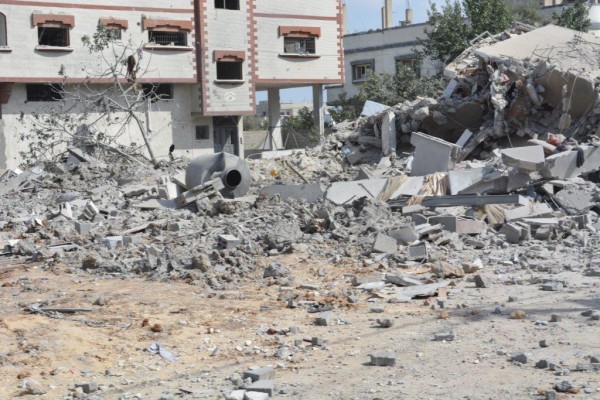
But we were alive, our survival a result of the fevered work of my friends and their contacts, their screams and condemnation, their pressure on politicians around the world, on the Red Cross, on the media. But nobody cheered.
A press team came before the ambulances. The roads were destroyed; they were clearing them by hand in order to get through. The hospital was emptied. I went through it one more time to make sure there really was nobody left; viewed the damage, the large holes in the walls, the small holes, how a gurney was filled with shattered glass and grout under a painted elephant on the wall. It was a room that was designated for the children.
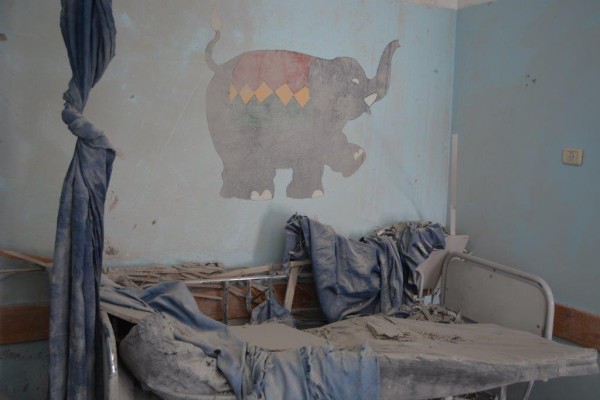
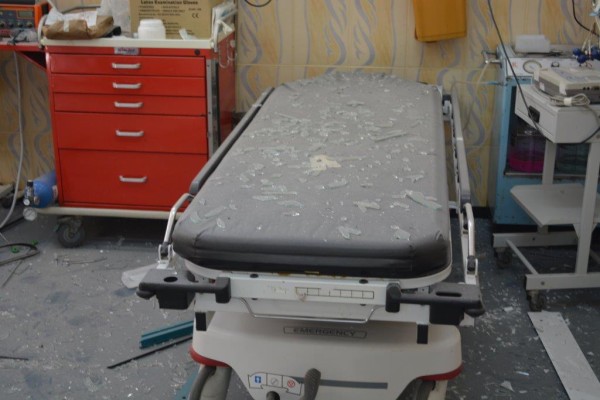
We left, Fred and I, the last to leave. Everywhere people desperately searched among the rubble of what had once been their homes for relatives, for possessions that could be saved. People who lost everything. I should have helped, but I was tired, mentally tired, but they were also tired, and my bad conscience grew stronger. I should have stayed and helped them dig in the rubble.
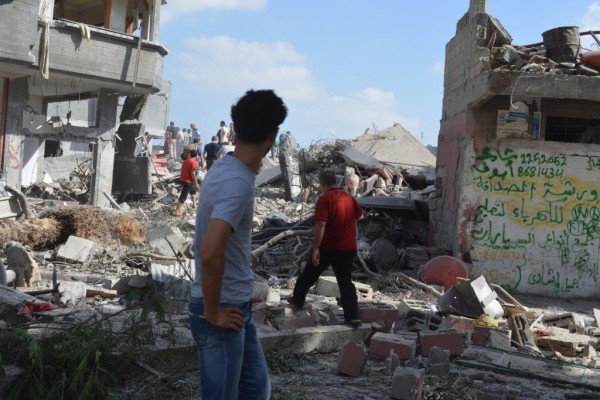
The ceasefire was extended to midnight. Then Israel came with an offer for an additional 24 hours of truce. Extremely clever of them. All the pressure that had been built up by the outside world they now shoveled over to Hamas. Should they accept the peace or continue with the violence? But it would very likely mean a return to what the situation was after the war in 2012, a peace treaty that Israel clearly showed that it had no intention of respecting. The fishermen continued to be attacked, farmers were shot, the blockade continued.
And that is exactly what this war is about, not to create security for Israel’s civilian population. It’s about continuing the blockade of Gaza, continuing the ongoing colonization of a territory that does not belong to Israel. It’s about preventing political unity between Gaza and the West Bank, a unity Israel sees as a threat to its continued control. Without unification and the end of colonization and the blockade of Gaza, war will flare up again, with more hospitals demolished with people inside. More children who lose their parents and parents who lose their children, and people will lose their faith in the future and the possibility of freedom and justice.


